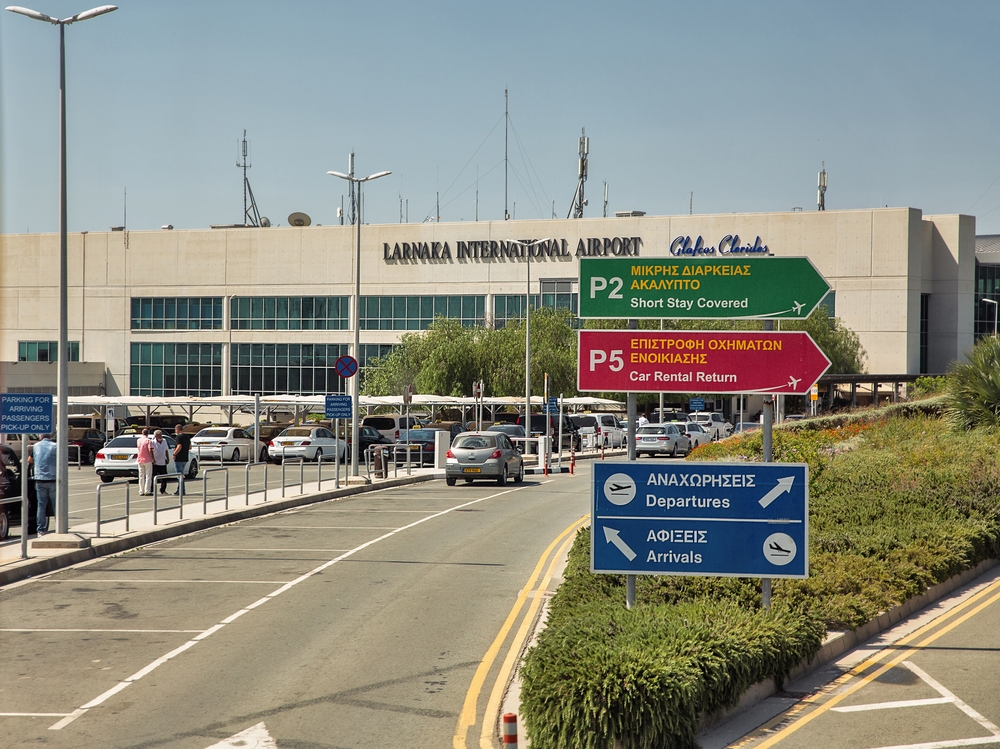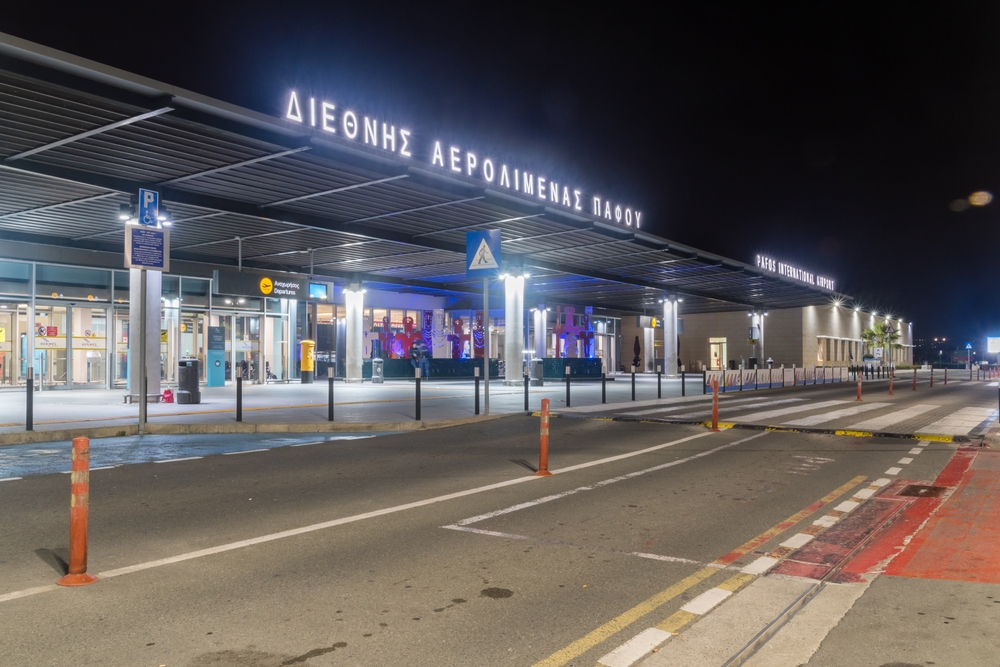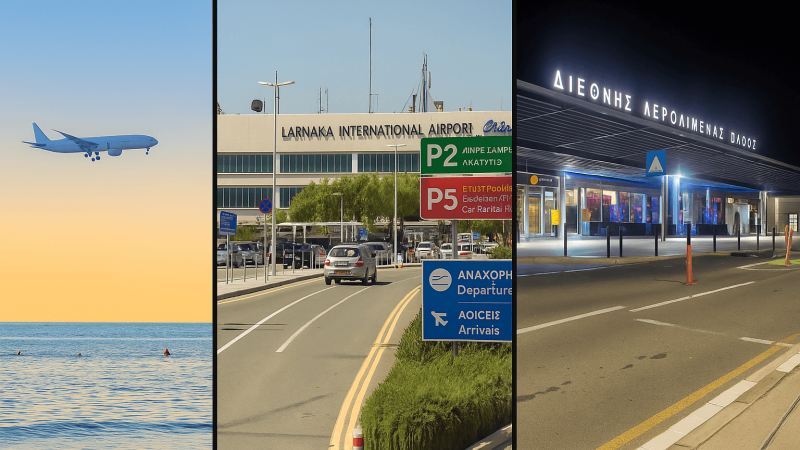Cyprus announced this week the start of one of its most ambitious aviation infrastructure projects ever: a comprehensive upgrade of its two international airports in Larnaca and Paphos, with a total investment of €170 million.
The work will be carried out over several years in collaboration with Hermes Airports, which operates the airports.
Cypriot President Nicos Christodoulides tweeted, "The start of work to upgrade our airports is not just an investment in infrastructure; it is an investment in Cyprus's international identity, economic development, and the upgrade of the hospitality experience, both for our citizens and for the many visitors who choose us each year."
 Larnaca Airport. Photo: Shutterstock
Larnaca Airport. Photo: ShutterstockThe project will include a significant expansion of terminals, improvement of security and check-in systems, upgrading of digital systems for passenger management and queues, addition of gates, enhanced commercial areas, and upgrading existing systems as part of a move to make both airports "green"—in line with the European Union's climate policies.
The plan aims to double passenger handling capacity and prepare Cyprus for the era of mass tourism, while offering higher service levels.
One of the main targets justifying the immediate need for an upgrade is Israel.
Last year saw an unprecedented record of over 800,000 Israelis visiting Cyprus, a surge of nearly 25% compared to 2023.
Throughout the spring and summer months, there are about 20 daily flights between Israel and Cyprus, operated by Israeli, Cypriot, and international airlines including Ryanair (not currently flying to Israel), Wizz Air, Arkia Airlines, Israir, Sundor Airlines, Haifa Air, Tus Airways, Blue Bird, and more charter flights.
Most flights from Ben Gurion and Haifa land at Larnaca Airport, and some at Paphos Airport which is a base for Ryanair (currently Israeli airlines are prohibited from flying there).
 Paphos Airport. Photo: Shutterstock
Paphos Airport. Photo: ShutterstockAccording to Hermes Airport, which manages Cyprus's airports, this broad move is designed to address not only current pressures but the anticipated growth in the coming years, focusing on strengthening Cyprus as a hub for transfer, tourism, and leisure in the northeastern Mediterranean.
Airport authorities state that the work will be done while maintaining full operations at the airports and is expected to be completed gradually by the start of the next decade.
The President of Cyprus concluded, "We are building infrastructure for the future—one that will reflect a new Cyprus: modern, open, connected to the world, and welcoming to all."


